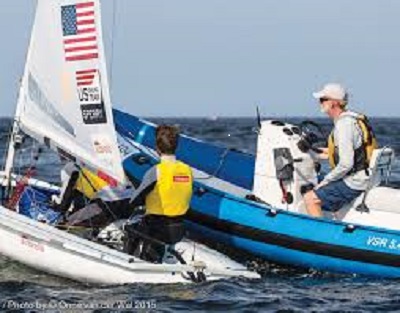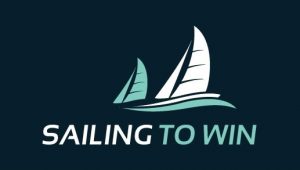

Below you will find parts of an Interview covering Psychology and Mental Toughness in Sailing that I conducted with champion sailor Dave Dellenbaugh.
David is the publisher, editor and author of Speed & Smarts racing newsletter. https://www.speedandsmarts.com
He was the tactician and starting helmsman on America3 during her successful defence of the America’s Cup in 1992 and sailed in three other America’s Cup campaigns from 1986 to 2007.
In addition, David is a Lightning world champion, two-time Congressional Cup winner, seven-time Thistle national champion, two-time winner of Canada’s Cup, three-time Prince of Wales U.S. match racing champion and past winner of the U.S. team racing championships for the Hinman Trophy.
Brett: Let’s talk about psychology and mental toughness. From a psychological point of view, what are the toughest challenges most sailors face and how do you think they should overcome them?
David: Okay. Well, let me ask you a question about the question. Are you talking about sort of overall getting in sailing or are you talking about like during a race, let’s say, or any of the above?
Brett: If you are a front-runner and end up stuck down at the back, how do you overcome that?
David: I think that what we want to talk about here is your average sailor who’s out there on weekends or whatever, trying to have fun and do their best. They want to win a few races and not somebody who’s sailing all the time and has lots of time and money.
The toughest thing is when you get behind you need to do as well as you can from where you are.
I think the easiest thing is to make a mistake or get behind for whatever reason. Whether it’s just luck or bad luck. Don’t blame yourself for being there and then be frustrated. This brings about negative emotions.
The thing is, no matter why you got wherever you are, let go of that. Understand why you are where you are.
From an objective point of view, was it a wind shift, but let go of the psychological reasons for being there.
SAILING TO WIN BOOK AND BONUSES
Brett: As a coach, do you think that psychology is one of the most neglected aspects of our sport? Is it something you are working on within your coaching routine?
David: As a general rule, it’s neglected. If you go to other sports, you see that psychology plays a bigger part.
In the U.S. sailing team and many other Olympic teams, we have a dedicated sports psychologist who’s available to do the athletes.
I think that it really comes back to what the sailor wants. Everybody’s different, and for some people, the psychology part of it can help them more than it would help others.
Some people don’t want to talk about psychology at all, and other people, it’s all psychology it’s a huge part of it.
CLICK FOR FREE SAILING GLOVES
Brett: I think that each team has to find out what’s the best balance. What is the best emphasis to put on the mental and psychological aspect?
Dave: Some people put too much emphasis on it and some people don’t put enough. It’s up to each team to figure out. They must try different things and find out what works best for them.
If anything people don’t get into a routine and don’t act. They do the same thing over and over.
I think that learning involves trying new things or looking at things differently.
Not 100% of the people are going to relate to that, but maybe half the people or a third of the people will say, “Aha, that’s a way that I’ve never looked at that before, that’s kind of cool. Maybe I can look at it that way.”
I think that that’s as far as dealing with psychology in sailing, it’s good to try things that are a little bit different.
Brett: Do you have sessions ashore with your crew as part of your training? Maybe you all get together and talk about what are the things we need to do to improve? Or the training session ashore, I guess, is what I’m talking about rather than that on the boat.
David: Definitely. I think that one of the things that people don’t do enough of is planning and setting goals.
Having said that, I would say that for people who have a limited amount of time to spend together training for sailing, time on the water is more valuable than time on land, and if you have a good chance to go sailing, you should do that.
Again, having said that, if you go sailing and you don’t have a plan for what you’re doing, then your time…if you don’t spend your time efficiently on the water, you’ve wasted that time.
So there is a certain amount of off-the-water thinking that you need to do to make your on-the-water time as efficient and productive as you can.
I hate from a sailing or a coaching point of view, wasting time on the water. This goes especially in any kind of practice situation.
I have this thing where…and this is something that Buddy Melges did when I sailed with Buddy in America’s Cup in Australia and in San Diego, is that when you’re out there, the switch is always either on or off.
If the switch is off everybody is just totally relaxed. You can just eat and do whatever you want.
If the switch is on, it means you are 100% racing or practising for racing.
What’s not good is to be in between that. Whereas some people think that you’re practising, some people think you’re not really. Some people are 60% and some people are 95%. That’s a bad combination.
You make a plan, you go out there, you’re either totally on or you’re totally off. You’re using your time as efficiently as possible.

